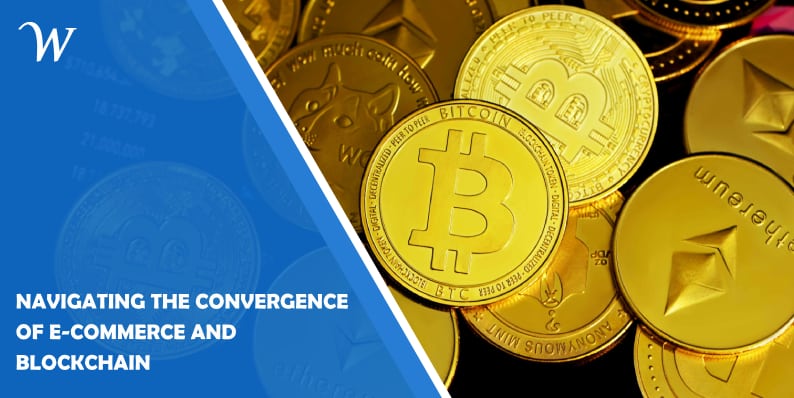In the ever-evolving spheres of e-commerce and blockchain, the amalgamation of these two domains is not only fascinating but also indicative of a future where transactions are faster, more secure and transparent. As one delves into this intriguing convergence, one witnesses the role of blockchain in revolutionizing traditional e-commerce models, offering insight into a future where digital commerce and digital currencies coexist seamlessly. Amidst the fluctuating landscape of cryptocurrencies, one cannot help but marvel at the Bitcoin current halving price, presenting a scenario ripe for discussion among enthusiasts and skeptics alike.
Decoding blockchain for the e-commerce enthusiast
At its core, blockchain technology is a decentralized ledger that records transactions across multiple computers so that the record cannot be altered retroactively, without the alteration of all subsequent blocks and the consensus of the network. This fundamental aspect of blockchain ensures a level of security and transparency previously unattainable in traditional e-commerce systems. For retailers and consumers alike, this means transactions that are not only safer but also more transparent, paving the way for a trust-based relationship that encourages repeat transactions and long-term loyalty.
Blockchain’s intrinsic characteristics make it a natural ally to e-commerce players seeking to enhance customer experience. By enabling data to be distributed but not copied or tampered with, blockchain propels the concept of data integrity into new realms of possibility. This level of data certainty empowers e-commerce stakeholders to trace product authenticity, a significant stride towards combating counterfeiting and preserving brand value. Furthermore, e-commerce platforms can leverage blockchain to create customer rewards programs that use tokens as incentives, which may increase customer engagement and retention.
Embracing cryptocurrencies in online shopping
While the concept of using cryptocurrencies for online purchases is not new, its adoption has been slower than anticipated, primarily due to volatility concerns and the learning curve associated with digital currencies. However, the tide is beginning to turn. More e-commerce platforms are warming up to the idea of accepting cryptocurrencies, not just Bitcoin but also a variety of altcoins. This shift is driven by the attractive features of cryptocurrencies: lower transaction fees, increased privacy and an international reach that traditional fiat currencies cannot match. For e-commerce retailers, this means access to a global market without the burden of currency exchange fees.
Blockchain: not just for payments
The application of blockchain in e-commerce extends beyond mere transaction processing. One of the standout features of blockchain is its ability to facilitate better inventory management. Through blockchain, e-commerce platforms can maintain an immutable record of their inventory in real time, reducing losses and improving efficiency. Additionally, the implementation of smart contracts automates and secures transactions, ensuring that agreements are honored and disputes are minimized. This not only streamlines the purchasing process but also builds a foundation of trust between buyers and sellers.
Challenges on the horizon
Despite the promising integration of blockchain and e-commerce, challenges remain. Regulatory concerns are at the forefront, with governments around the world grappling with how to manage and govern digital transactions. Additionally, the technological infrastructure needed to support the widespread adoption of blockchain and cryptocurrencies in e-commerce is still in its developmental stage. There’s also the matter of consumer and retailer education; both parties need to understand and trust the system for it to become universally accepted. Overcoming these hurdles requires concerted efforts from technology developers, regulatory bodies and the e-commerce community.
As the world stands at the cusp of a new era in digital commerce, it’s clear that blockchain technology holds the key to a more secure, efficient and transparent future for online shopping. The pathway may be dotted with challenges, but the potential rewards for consumers and retailers alike make this journey not just necessary but inevitable. With careful navigation and a collaborative spirit, the e-commerce and blockchain convergence will undoubtedly pave the way for unprecedented opportunities in the digital marketplace.
